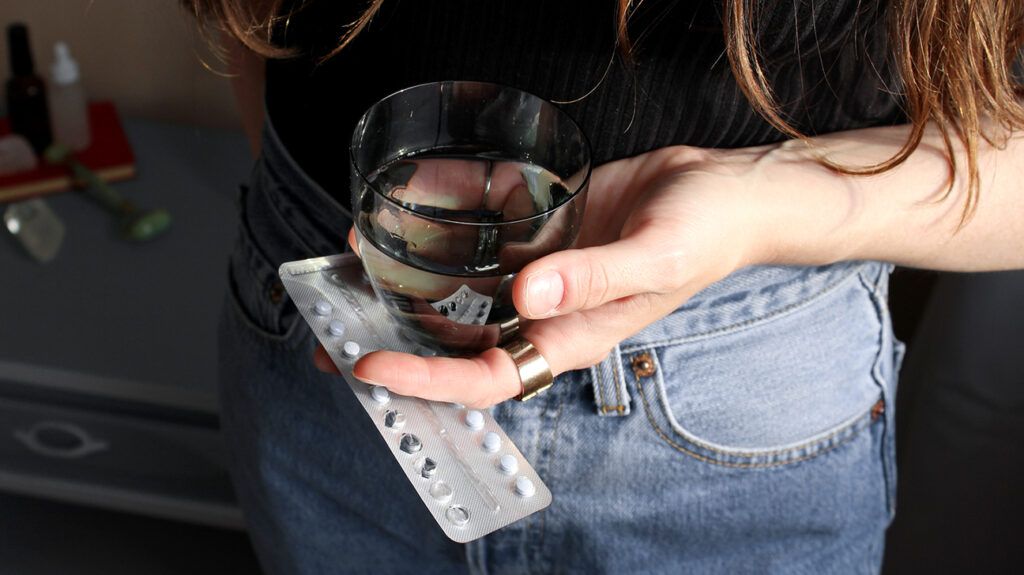Using birth control may increase the risk of developing hypothyroidism. However, some evidence contradicts these findings. The effect may relate to the type of hormone the birth control contains — estrogen or progesterone.
Hypothyroidism occurs when the thyroid does not produce enough hormones to fulfill a person’s needs.
An estimated
Studies suggest both a positive and negative correlation between birth control and hypothyroidism.
This article presents evidence to help answer various questions about birth control and hypothyroidism.
A note about sex and gender
Sex and gender exist on spectrums. This article will use the terms “male,” “female,” or both to refer to sex assigned at birth. Click here to learn more.

General consensus among healthcare professionals indicates that the use of oral contraceptives in people living with hypothyroidism is safe. Studies dating back to the 1990s indicate no contradictions in their use.
However, a 2020 study notes that the topic of safety and oral hormonal contraceptive use is lacking. They also suggest that using birth control pills may increase the effects of androgens in people with subclinical hypothyroidism and people treated with LT4 (levothyroxine).
Androgens can increase the risk of cardiovascular issues and blood clots. Subclinical hypothyroidism may also increase platelet count and increase cardiovascular risk. Androgens are hormones that contribute to reproduction and growth.
Further
In other words, taking oral hormonal contraceptives may increase the risk of cardiovascular disease and related health issues. Future research may explore the connection and risk in greater detail.
Evidence surrounding birth control’s effect on increasing or decreasing hypothyroidism risk is somewhat conflicting.
A 2021 study of over 5,116 females with and without a history of taking birth control pills found a higher prevalence of hypothyroidism in those who have ever taken hormonal birth control pills. The study suggested that after adjusting for extraneous variables, it was only the use of over 10 years that was associated with this risk.
They note in their findings that several studies over the years have found conflicting results. Their study adjusted for some of the shortcomings of previous studies, such as population size and follow-ups.
Still, a 2023 study found contradictory results to the 2021 study. In the 2023 study, researchers included 18,578 different people who either used intrauterine devices (IUDs), estrogen only, or progesterone only, along with a control group.
They found that the use of any form of hormonal contraceptives helps to reduce the risk of developing hypothyroidism.
Scientific evidence does not have a consensus on the safety or risk of using hormonal birth control and hypothyroidism risk.
A person with other risk factors for hypothyroidism or living with subclinical hypothyroidism may want to choose nonhormonal forms of birth control.
Pregnancy within the
A person with this or other risk factors may want to discuss their concerns with a healthcare professional.
A person may prefer to use barrier methods, such as nonhormonal IUDs, condoms, or a diaphragm if they have a higher risk of hypothyroidism.
The following sections provide answers to frequently asked questions about birth control and thyroid issues.
Is birth control bad for Hashimoto’s?
Hashimoto’s disease increases a person’s chances of developing hypothyroidism, though not everyone will develop the condition.
Hormonal birth control using estrogen and progesterone may increase the risk of developing hypothyroidism. However, there’s no evidence to suggest it can lead to the development of Hashimoto’s disease.
A person living with Hashimoto’s disease should discuss birth control options with a healthcare professional.
Can hypothyroidism cause hormonal imbalance?
Hypothyroidism occurs due to low levels of thyroid hormones, which can lead to disruption of other hormones. The thyroid produces several hormones that affect several processes throughout the body,
How birth control affects hypothyroidism remains controversial in medical literature and relatively understudied. One 2023 study suggests a protective effect, while a 2021 study suggests hormonal birth control is a risk factor, particularly with prolonged use.
A person with other risk factors for hypothyroidism may wish to discuss alternative methods for birth control with a healthcare professional. Barrier methods, such as condoms, or other non-hormone-based contraceptives, may be an appropriate choice in some cases.
